Search
Remove Ads
Advertisement
Summary 
Loading AI-generated summary based on World History Encyclopedia articles ...
Search Results
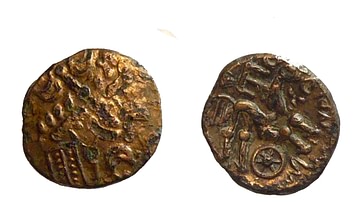
Definition
Commius
Commius was an Atrebates noble during Julius Caesar's Gallic Wars (58-50 BCE) who turned from Roman ally to indomitable foe. As king of the Atrebates, Commius ably served Caesar in Britannia and Gaul before becoming one of the main leaders...

Image
Coin of Commius
Iron Age plated gold stater, struck for Commius, found in the Southern Region of Britain, dating to the period c. 50-25 BCE.
Obverse: Wreath design with two hidden faces. Reverse: Horse right, wheel below.
The British Museum, London.
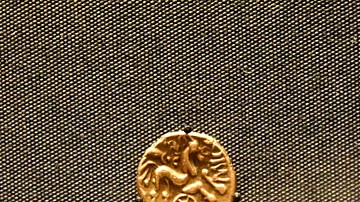
Image
Britain's First Inscribed Coins
This coin, naming the ruler Commius, is probably the earliest evidence of writing in Britain. His name appears in its Celtic form, "COMMIOS". Later coins, such as those of his son Tincomarus, have inscriptions written in Latin. Gold coin...
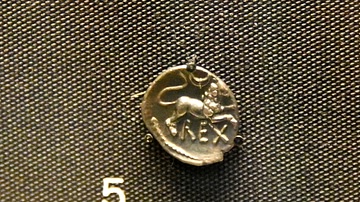
Image
Latin and Celtic on British Coin
Before the Roman invasion of Britain in 43 CE, rulers in the south-east struck coins with Latin inscriptions. Verica is described as REX (king) and COOMI F (son of Commius). Gradually, names usually in Celtic, appeared on coins beyond the...
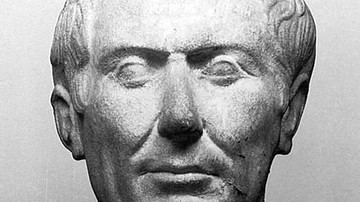
Definition
Julius Caesar
Gaius Julius Caesar was born 12 July 100 BCE (though some cite 102 as his birth year). His father, also Gaius Julius Caesar, was a Praetor who governed the province of Asia and his mother, Aurelia Cotta, was of noble birth. Both held to the...

Article
Battle of Alesia
The Battle of Alesia was a decisive Roman victory in Julius Caesar's Gallic Wars in September 52 BCE. Roman commander Julius Caesar (100-44 BCE) and his legions faced a united Gallic army under the command of Vercingetorix (82-46 BCE), chief...
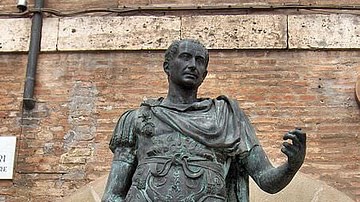
Article
Julius Caesar: The Faults Behind the Myth
Last March marked the anniversary of Julius Caesar's assassination over 2,000 years ago, and after two millennia, his legendary achievements still linger in today's consciousness just as they have for centuries. He was so revered that in...
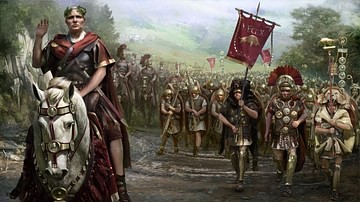
Article
Julius Caesar in Britain
By the time he led his invasions of Britain, Julius Caesar (100-44 BCE) was already an experienced politician and successful military commander. As a member of a patrician family which claimed a pedigree reaching back even earlier than the...

Definition
Diodorus Siculus
Diodorus Siculus or Diodorus of Sicily (active 1st century BCE) was a Greek historian, known for his universal history Bibliotheca Historica. Originally, it was a 40-volume monumental work, covering the history of the Mediterranean region...
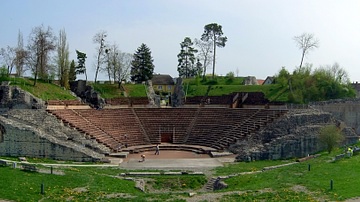
Definition
Augusta Raurica
Augusta Raurica is a former Roman colony and city located on the Rhine River some 11 km (7 miles) east of the modern Swiss city of Basel, in between the towns of Kaiseraugst and Augst. Founded by Lucius Munatius Plancus (90 BCE - 15 BCE...